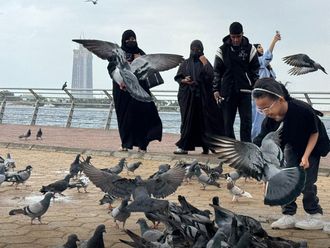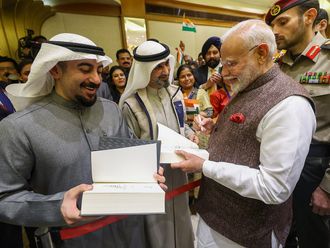Islamabad: Pakistani army chief General Ashfaq Parvez Kayani on Monday delivered a tough warning to terrorists a day after a roadside bomb attack, owned by Tehrik-e-Taliban Pakistan (TTP), killed two senior army officers near the Afghan border in northwestern Khyber Pakhtunkhwa province.
Reiterating the army’s “resolve and unflinching commitment in fighting terrorism in accordance with the will of the nation at any cost,” Gen Kayani vowed “to spare no effort in bringing the perpetrators of these cowardly acts of terrorism to justice.”
While reaffirming army’s support to a political process for peace, the army chief also “unequivocally” said that terrorists will not be allowed to take advantage of it.
He emphasized that “while it is understandable to give peace a chance through a political process but no one should have any misgivings that we would let terrorists coerce us into accepting their terms.”
“Army has the ability and the will to take the fight to the terrorists,” Gen Kayani said.
The IED (improvised explosive device) attack on Sunday in Upper Dir killed Major General Sanaullah Khan and Lt Colonel Tauseef Ahmed along with a solider while they were returning after visiting troops deployed on the border.
Earlier on Saturday night militants attacked a patrol of tribal Khassadar police near the town of Bannu killing one and injuring four. The next day two army posts in North Waziristan tribal area were subjected to IED attacks, leaving two soldiers dead and two injured.
Gen Kayani paid rich tributes to the “exemplary courage, total commitment to duty and the demonstration of highest leadership qualities by Major General Sanaullah Khan.”
He said the major general “has set towering example of leading from the front which is hallmark of leadership in Pakistan Army.”
Gen Kayani pledged to stand with the families of those killed and injured and said the Pakistani nation and army would remain indebted to the sacrifices of their soldiers.
TTP, through its spokesman Shahidullah Shahid, claimed responsibility for the attack in which the two senior army officers were killed.
The attack was seen as a blow to the plan of the government of Prime Minister Nawaz Sharif to open peace talks with TTP, which was unanimously backed by a conference of major political parties chaired by him earlier this month.
Coinciding with the attack, the TTP reportedly set two conditions — release of Taliban prisoners and troops pullout from the tribal areas — as conditions for engaging in talks with the government, which also appeared to further complicate the path to dialogue.
Former president Asif Ali Zardari, in a statement issued on Sunday on the occasion of International Day of Democracy, warned against appeasing militants.
The leader of the main opposition Pakistan Peoples Party, condemning the Dir attack, said, “The greatest... threat to democracy emanates from the militant mindset that seeks to impose their agenda through force.”
“If there has been any doubt about the futility of appeasing the militants these must be removed by the incident in Upper Dir,” Zardari said.
A prominent local daily, in editorial comment, deplored that the civilian leadership “was unable to even issue a strong condemnation of the group that claimed responsibility for the [Dir] attack.”
“With the kind of political leadership on display in recent days, a fairly legitimate question would be — ought the country to fear the TTP more or its own elected leadership?” the editorial in Dawn said, adding “surely the situation demands that the politicians rectify their pusillanimous approach.”












